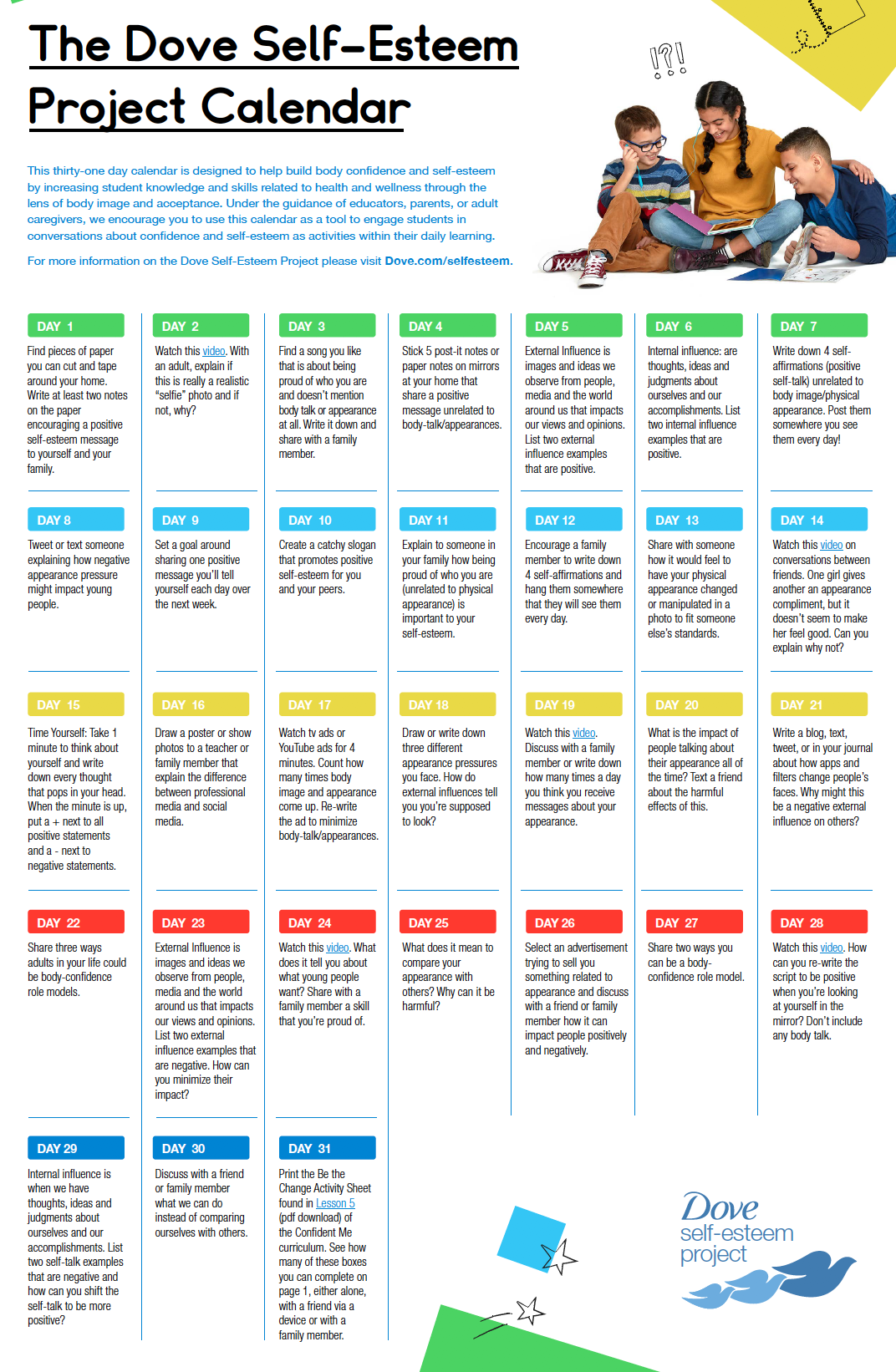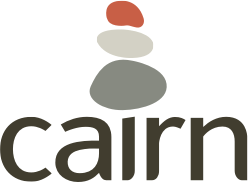Written by Cairn Guidance, a Dove Self-Esteem Project Partner

Great things happen in the educational learning environment. Had this statement been written in the early days of March, instead of May, the previous sentence would have read, “Great things happen in the classroom.” We all would envision the four walls of a classroom with desks or tables, lively bulletin boards, a smart board, computers, or tablets, perhaps some stations, an educator facilitating, and students engaged in activities. Fast forward and we see an educator in their home and students faces lit up on the screen as they engage from their individual homes. We are now a country of one-hundred percent virtual learners in our K-12, and even college classrooms. Most adults are working from home. Some states are ordering citizens to stay home except for venturing out for essential services. Restaurants are offering takeout and delivery, no sit-down dining. Parks, in many places, are closed, as are movie theatres. Malls are closed or there are a sparse number department stores open in states where there may just be a curfew. No physical gatherings larger than ten are allowed. Tape marks the floor where shoppers are to stand six feet apart while they wait to pay for their groceries, medicine, or other items.
The current reality has impacted the learning environment. However, virtual learning can lead to students taking on more responsibility for their learning and adult caregivers participating more in the process. The use of a prompts calendar can extend the learning and invite others to be a part of the students’ skill development or growth. In this case, we are speaking of the health education skills of external and internal influences related to self-esteem and body confidence. How students feel about themselves can impact, either positively or negatively, their academic performance and other aspects of their lives.
Through our partnership with The Dove Self-Esteem Project, we are here to provide resources for parents, mentors, teachers, and youth leaders to help deliver self-esteem education. The Dove Self-Esteem Project has already helped more than 60 million young people to tackle low body confidence and anxieties over appearance worldwide since 2004 and is aiming to help 250 million by 2030.
During this time, the Dove Self-Esteem Project has created calendar prompts for middle school students that include learning extension activities for thirty-one days. The activities reflect different student learning styles and require an action or actions that support the development of positive health skills. It is an opportunity for students to learn, reflect and respond to the prompt daily and build up their self-esteem throughout the course of a month. Now and continued into the summer break, parents or adult caregivers can view the calendar and support their child’s learning through discussions or participating themselves to help improve emotional wellbeing.
The Dove Self-Esteem Project calendar prompts include hot-links to several short videos and at least one worksheet. It asks students to draw or gather photos, examine advertisements, post positive notes in their environment, share thoughts, use social media, watch videos, create a slogan, write or re-write, etcetera. They must think critically, list, discuss, analyze, compare, and contrast, explain, examine, re-write, and set goals. Educators or adult caregivers can support learning by engaging students in conversations on any of the activities listed for any or all the dates. This thirty-one-day calendar is designed to increase student knowledge and skills related to specific health behaviors.
Educators can attach the calendar as a part of their instruction and/or use these activities to extend classroom instruction. It is important for educators to encourage their virtual students to use the calendar and to check in with them on the activities. Students may feel more isolated than they have ever been in their young lives, which can take its toll. In order to keep them focused, moving, and thinking in a positive direction, extension activities play an important role. Parents or adult caregivers are essential partners in keeping their children focused, positive, encouraged, balanced, and on task. The Dove Self-Esteem Project calendar prompts give these adults an opportunity to engage their children and be an active part of the learning process in this current “new” normal.
The Dove Self-Esteem Project would like to know how you envision using the calendar with middle school students. Please email us at info@cairnguidance.com. We are here to provide instructional support for you and assist with your work with parents/caregivers, a child’s first teacher.
For further resources please visit dove.com/selfesteem

Leave a Reply